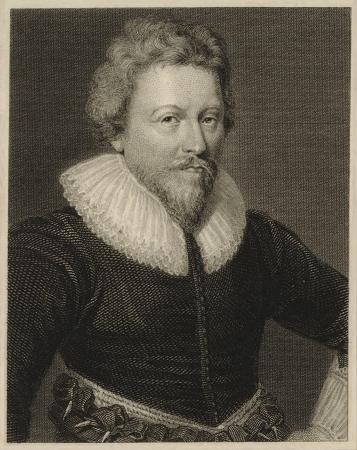John Fletcher (1579 - 1625). John Fletcher was a Jacobean playwright. Following William Shakespeare as house playwright for the King's Men, he was among the most prolific and influential dramatists of his day; during his lifetime and in the early Restoration, his fame rivalled Shakespeare's. He collaborated on writing plays with Francis Beaumont, and also with William Shakespeare on two plays. Though his reputation has been far eclipsed since, Fletcher remains an important transitional figure between the Elizabethan popular tradition and the popular drama of the Restoration. Fletcher was born in December 1579 in Rye, Sussex, and died of the plague in August 1625. His father Richard Fletcher was an ambitious and successful cleric who was in turn Dean of Peterborough, Bishop of Bristol, Bishop of Worcester and Bishop of London, as well as chaplain to Queen Elizabeth. As Dean of Peterborough, Richard Fletcher, at the execution of Mary, Queen of Scots at Fotheringay Castle, knelt down on the scaffold steps and started to pray out loud and at length, in a prolonged and rhetorical style as though determined to force his way into the pages of history. He cried out at her death, So perish all the Queen's enemies! Richard Fletcher died shortly after falling out of favour with the Queen, over a marriage she had advised against. He appears to have been partly rehabilitated before his death in 1596 but he died substantially in debt. The upbringing of John Fletcher and his seven siblings was entrusted to his paternal uncle Giles Fletcher, a poet and minor official. His uncle's connexions ceased to be a benefit and may even have become a liability after the rebellion of Robert Devereux the Earl of Essex, who had been his patron. Fletcher appears to have entered Corpus Christi College, Cambridge University in 1591, at the age of eleven. It is not certain that he took a degree but evidence suggests that he was preparing for a career in the church. Little is known about his time at college but he evidently followed the path previously trodden by the University wits before him, from Cambridge to the burgeoning commercial theatre of London. In 1606, he began to appear as a playwright for the Children of the Queen's Revels, then performing at the Blackfriars Theatre. Commendatory verses by Richard Brome in the Beaumont and Fletcher 1647 folio place Fletcher in the company of Ben Jonson; a comment of Jonson's to Drummond corroborates this claim, although it is not known when this friendship began. At the beginning of his career, his most important association was with Francis Beaumont. The two wrote together for close on a decade, first for the children and then for the King's Men. According to an anecdote transmitted or invented by John Aubrey, they also lived together, sharing clothes and having one wench in the house between them. This domestic arrangement, if it existed, was ended by Beaumont's marriage in 1613 and their dramatic partnership ended after Beaumont fell ill, probably of a stroke, the same year. By this time, Fletcher had moved into a closer association with the King's Men. He collaborated with Shakespeare on Henry VIII, The Two Noble Kinsmen and the lost Cardenio, which is probably the basis for Lewis Theobald's play Double Falsehood. A play he wrote singly around this time, The Woman's Prize or the Tamer Tamed, is a sequel to The Taming of the Shrew. In 1616, after Shakespeare's death, Fletcher appears to have entered into an exclusive arrangement with the King's Men similar to Shakespeare's. Fletcher wrote only for that company between the death of Shakespeare and his death nine years later. He never lost his habit of collaboration, working with Nathan Field and later with Philip Massinger, who succeeded him as house playwright for the King's Men. His popularity continued throughout his life; during the winter of 1621, three of his plays were performed at court. He died in 1625, apparently of the plague. He seems to have been buried in what is now Southwark Cathedral, although the precise location is not known; there is a reference by Aston Cockayne to a common grave for Fletcher and Massinger. What is more certain is that two simple adjacent stones in the floor of the Choir of Southwark Cathedral, one marked Edmond Shakespeare 1607' the other 'John Fletcher 1625' refer to Shakespeare's younger brother and the playwright. His mastery is most notable in two dramatic types, tragicomedy and comedy of manners. Fletcher's early career was marked by one significant failure, of The Faithful Shepherdess, his adaptation of Giovanni Battista Guarini's Il Pastor Fido, which was performed by the Blackfriars Children in 1608.
more...






